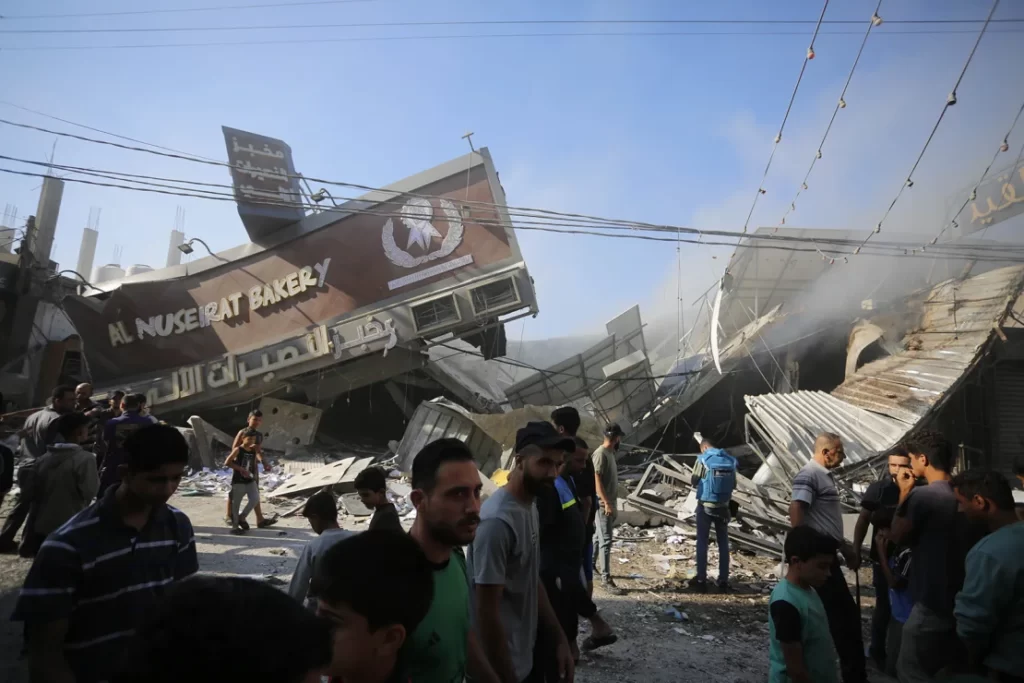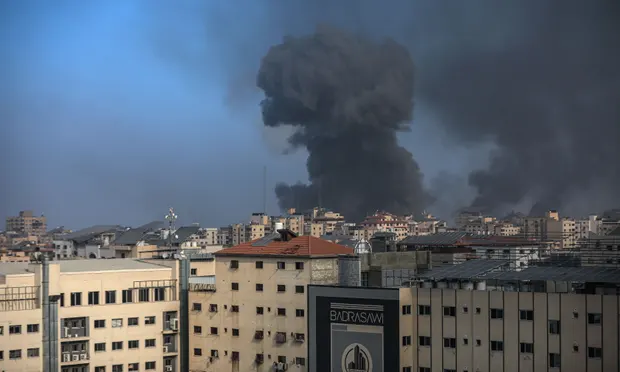The UN’s Office for the Coordination of Humanitarian Affairs OCHA has disclosed that several people are still in northern Gaza, beyond the reach of aid supplies.
OCHA spokesperson, Jens Laerke, said, “We cannot drive to the north at the current point, which is of course deeply frustrating because we know there are several hundred thousand people who remain in the north.”
“If there is a hell on earth today, its name is northern Gaza,” he added.
“It is a life of fear by day and darkness at night. And what do you tell your children in such a situation, it’s almost unimaginable – that the fire they see in the sky is out to kill them?”
Jens Laerke
According to the World Food Programme, all of the 2.3 million inhabitants in Gaza lack sufficient food and are facing malnutrition.
Kyung-nan Park, the director of emergencies for the UN agency said, “Before 7 October, 33% of the population were food insecure,” adding, “We can safely say that 100% are food insecure at this moment.”
She cited the lack of fuel and supplies to explain why only one of the 23 bakeries contracted by the agency is still functioning.

“Right now, we are entering 40 to 50 trucks. For just WFP food assistance, we would need 100 trucks a day to be able to provide any meaningful humanitarian food to the people in Gaza.
“There are stories of people going there, being in line for 10 days and leaving empty handed … It’s quite serious.”
Kyung-nan Park
Meanwhile, The World Health Organization echoed its alarm regarding the spread of infectious diseases in Gaza due to intense overcrowding, contaminated water and scant access to hygiene facilities.
In a statement, the WHO said that since mid-October 2023, more than half of the 33,551 reported cases of diarrhoea are among children under the age of five.
The organisation said it was a significant increase from the 2,000 or so monthly cases in children under five seen throughout 2021 and 2022.
“In health facilities, damaged water and sanitation systems, and dwindling cleaning supplies have made it almost impossible to maintain basic infection prevention and control measures. These developments substantially increase the risk of infections arising from trauma, surgery, wound care and childbirth.”
World Health Organization
The statement noted, “Insufficient personal protective equipment means that healthcare workers themselves can acquire and transmit infections while providing care to their patients.”
“The management of medical waste at hospitals has been severely disrupted, further increasing exposure to hazardous materials and infection,” it added.
UN Human Rights Chief Calls For Investigations

The UN human rights chief, Volker Turk, urged for an investigation into Israel’s use of “high-impact explosive weapons” in Gaza, which he says are causing indiscriminate destruction.
Turk said that Israel must end its use of such weapons in the densely populated area.
Turk said at a news conference during a visit to Amman that the use of these weapons “is clearly having a devastating humanitarian and human rights impact.”
“The attacks must be investigated. … We have very serious concerns that these amount to disproportionate attacks in breach of international humanitarian law.”
Earlier, Turk appealed for Israel to take immediate measures to protect Palestinians in the occupied West Bank “who are being on a daily basis subjected to violence from Israeli forces and settlers, ill treatment, arrests, evictions, intimidation and humiliation.”
Violence in the territory has increased, including the deaths of more than 180 Palestinians at the hands of Israeli forces, since the conflict with Hamas erupted on October 7.
READ ALSO: War Tightens Noose Around Gaza’s Already Battered Economy




















